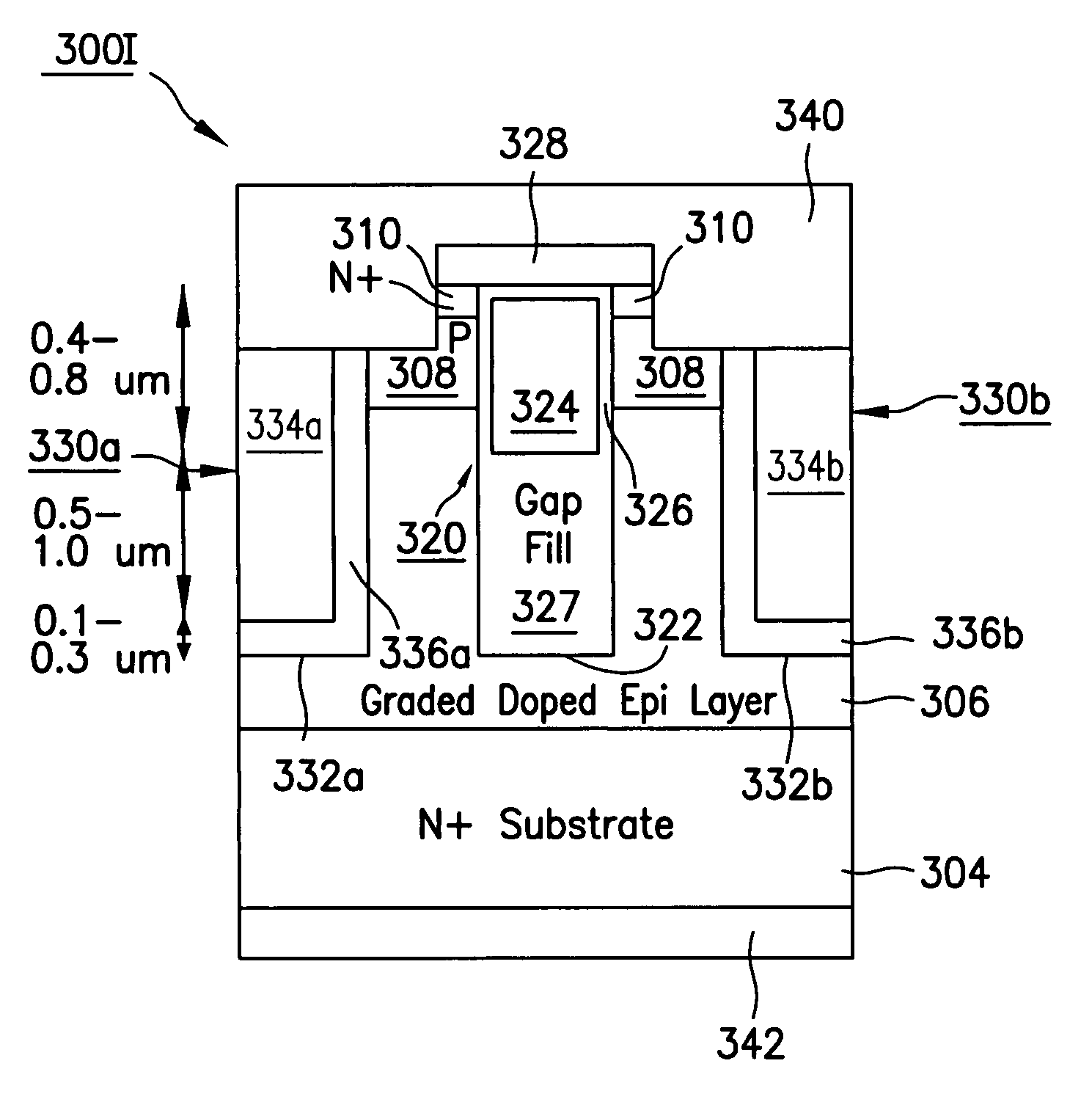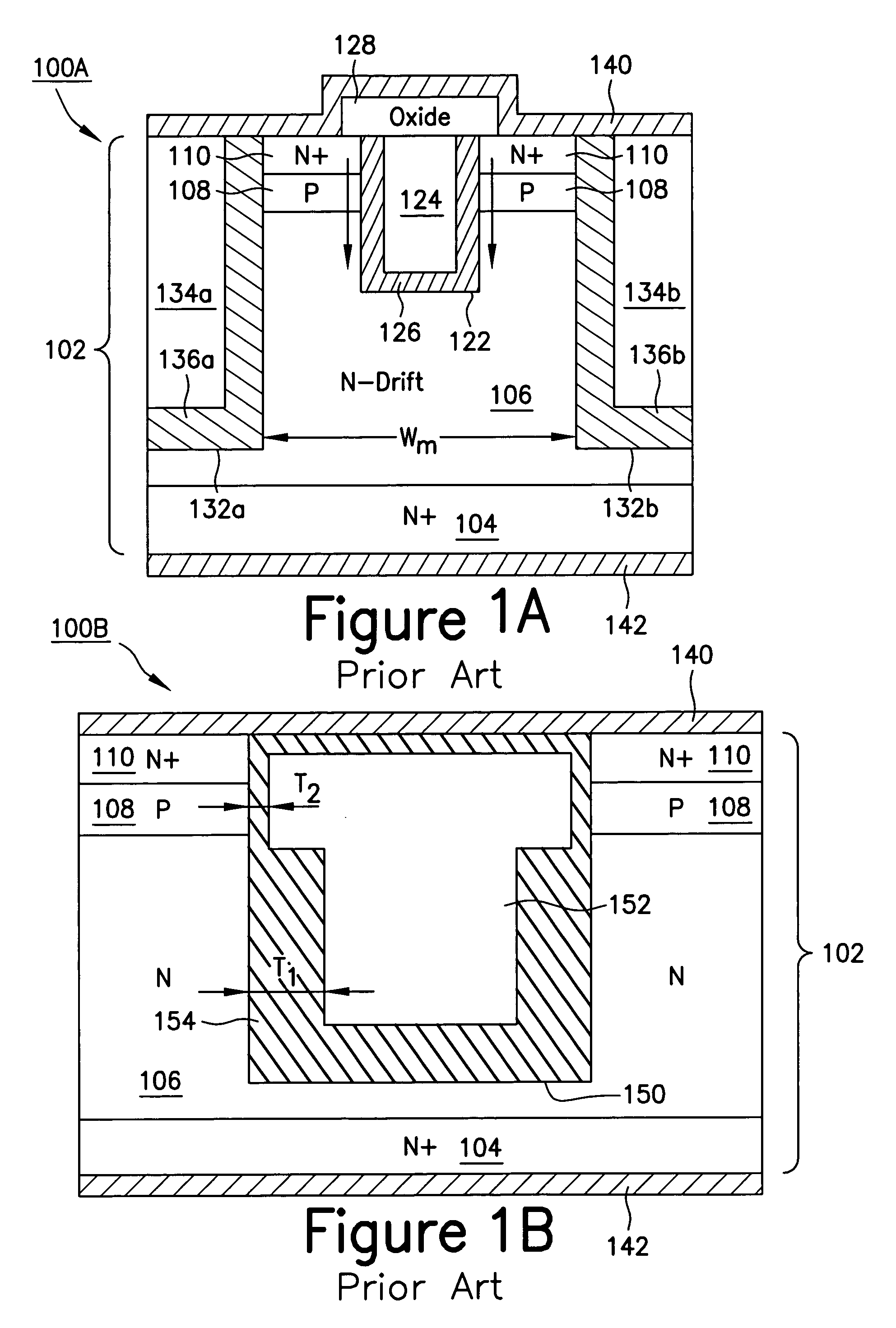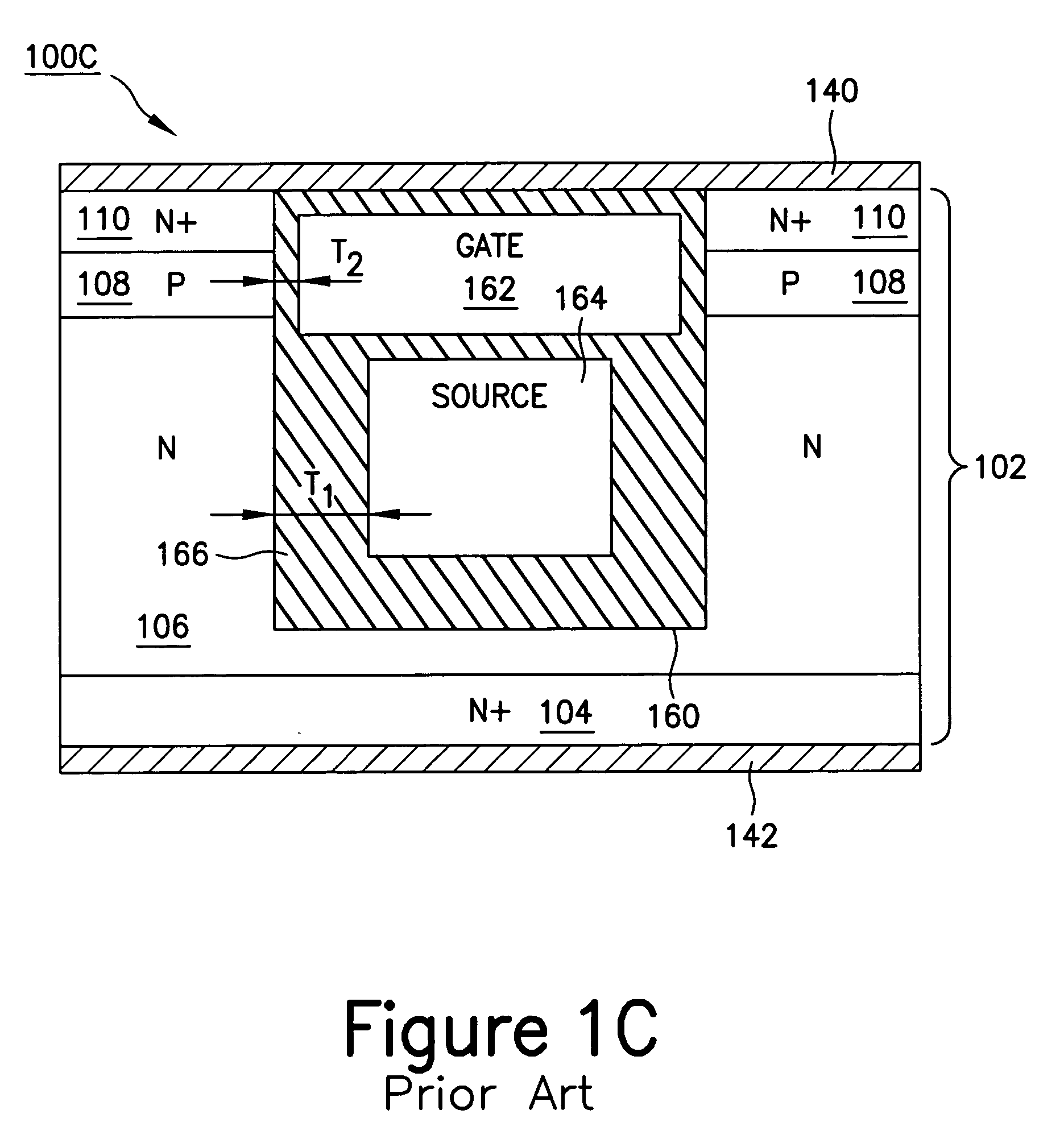Power devices having trench-based source and gate electrodes
a technology of gate electrodes and power devices, which is applied in the direction of semiconductor devices, diodes, electrical devices, etc., can solve the problems of reducing the on-resistance of devices, and achieve the effect of improving the breakdown voltage and on-resistance of devices
- Summary
- Abstract
- Description
- Claims
- Application Information
AI Technical Summary
Benefits of technology
Problems solved by technology
Method used
Image
Examples
Embodiment Construction
[0082] Referring to FIG. 2A, there is shown in cross section a portion of an example power semiconductor device 200A according to an embodiment of the present invention (Note that FIG. 2A and the other Figures described below are not drawn to scale). Device 200A includes a semiconductor body 202 that has a highly doped drain region 204 of a first conductivity type (e.g., N-type) and a drift region 206 of the same conductivity type, but of lower concentration of impurities, formed thereon. Formed over drift region 206 is channel region 208. Channel region 208 is of a second conductivity type opposite to that of the first conductivity type (e.g. P-type). Formed along the surface of semiconductor body 202 and over channel region 208 is a highly doped source region 210 of the first conductivity type (e.g. N-type).
[0083] According to an embodiment of the invention, drift region 206 is uniformly doped throughout. According to another embodiment of the invention, the doping in drift regio...
PUM
 Login to View More
Login to View More Abstract
Description
Claims
Application Information
 Login to View More
Login to View More - R&D
- Intellectual Property
- Life Sciences
- Materials
- Tech Scout
- Unparalleled Data Quality
- Higher Quality Content
- 60% Fewer Hallucinations
Browse by: Latest US Patents, China's latest patents, Technical Efficacy Thesaurus, Application Domain, Technology Topic, Popular Technical Reports.
© 2025 PatSnap. All rights reserved.Legal|Privacy policy|Modern Slavery Act Transparency Statement|Sitemap|About US| Contact US: help@patsnap.com



